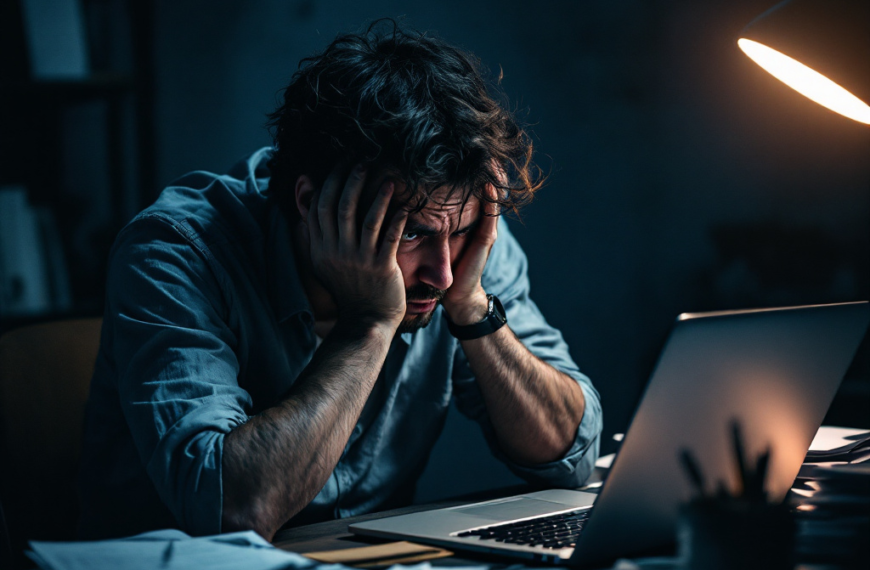Introduction
Anxiety is a natural response to stress and a common human experience. While occasional anxiety is normal and even beneficial in certain situations, excessive or chronic anxiety can interfere with daily life. Understanding anxiety, its causes, symptoms, and coping mechanisms can help individuals manage their mental well-being effectively.
What is Anxiety?
Anxiety is a feeling of worry, nervousness, or fear about an uncertain future event or situation. It activates the body’s “fight or flight” response, preparing it to react to perceived danger. However, when anxiety becomes persistent, overwhelming, and unmanageable, it may indicate an anxiety disorder.
Causes of Anxiety
Anxiety can arise from a combination of genetic, environmental, psychological, and physiological factors. Some common causes include:
- Genetics: A family history of anxiety disorders can increase susceptibility.
- Brain Chemistry: Imbalances in neurotransmitters like serotonin and dopamine play a role in anxiety disorders.
- Stressful Life Events: Traumatic experiences, financial difficulties, or major life changes can trigger anxiety.
- Medical Conditions: Chronic illnesses, hormonal imbalances, or substance abuse can contribute to anxiety.
Symptoms of Anxiety
Anxiety manifests in various ways, affecting both the mind and body. Common symptoms include:
- Physical Symptoms: Rapid heartbeat, sweating, trembling, headaches, dizziness, and stomach discomfort.
- Emotional Symptoms: Excessive worry, restlessness, irritability, and a sense of impending doom.
- Cognitive Symptoms: Difficulty concentrating, overthinking, and irrational fears.
- Behavioral Symptoms: Avoidance of anxiety-inducing situations and social withdrawal.
Common Types of Anxiety Disorders
There are several anxiety disorders, each with distinct characteristics:
- Generalized Anxiety Disorder (GAD): Persistent and excessive worry about everyday issues.
- Panic Disorder: Sudden and intense episodes of fear, often accompanied by physical symptoms like heart palpitations.
- Social Anxiety Disorder: Fear of social situations and interactions due to concerns about judgment or embarrassment.
- Obsessive-Compulsive Disorder (OCD): Recurring, intrusive thoughts (obsessions) and repetitive behaviors (compulsions) to alleviate anxiety.
- Post-Traumatic Stress Disorder (PTSD): Anxiety following a traumatic event, leading to flashbacks and heightened alertness.
Coping Strategies for Managing Anxiety
While anxiety can be overwhelming, various strategies can help manage it effectively:
Practice Mindfulness and Meditation: Mindfulness and meditation involve focusing on the present moment and observing thoughts without judgment. These practices help reduce stress, enhance self-awareness, and promote emotional balance. Regular mindfulness exercises, such as deep breathing and guided meditation, can improve mental clarity and resilience against anxiety.
Maintain a Healthy Lifestyle: A well-balanced lifestyle plays a crucial role in managing anxiety. Regular physical activity helps release endorphins, which enhance mood and reduce stress. Eating a nutritious diet rich in vitamins and minerals supports brain function and emotional well-being. Additionally, maintaining a consistent sleep schedule ensures the body and mind get adequate rest, which is essential for managing stress and anxiety.
Breathing and Relaxation Techniques: Deep breathing exercises and relaxation techniques can help calm the nervous system and reduce anxiety levels. Practices such as diaphragmatic breathing, progressive muscle relaxation, and guided imagery can alleviate physical tension and promote a sense of tranquillity. Incorporating these techniques into a daily routine can lead to long-term benefits in managing anxiety.
Challenge Negative Thoughts, Seek Social Support, and Professional Help: Challenging negative thoughts involves recognizing irrational or unhelpful thinking patterns and replacing them with positive and realistic perspectives. Seeking social support from friends, family, or support groups provides reassurance and helps reduce feelings of isolation. When anxiety becomes overwhelming, professional help from a therapist or counsellor can offer guidance, coping techniques, and, if necessary, medical treatment such as therapy or medication.
Conclusion
Anxiety is a common but manageable condition. Understanding its causes, recognizing symptoms, and implementing effective coping strategies can significantly improve one’s quality of life. If anxiety becomes debilitating, seeking professional help is crucial for better mental health and overall well-being.








